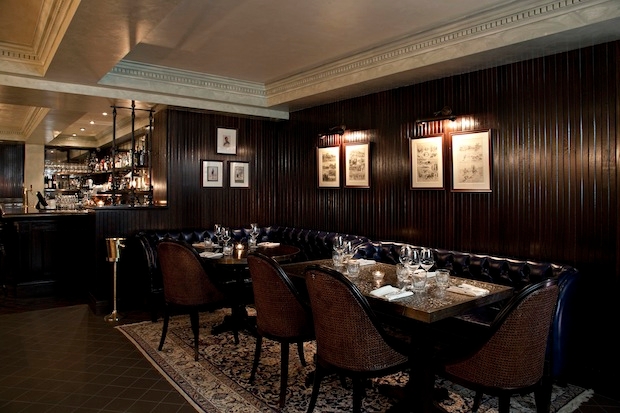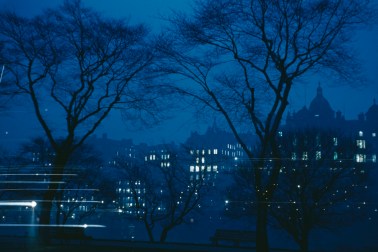Gymkhana is a fashionable Indian restaurant in Albemarle Street. It was, according to its natty website, ‘inspired by Colonial Indian gymkhana clubs, set up by the British Raj, where members of high society came to socialise, dine, drink and play sport’. This is revolting, in the same way that eating in homage to apartheid South Africa or to commemorate the genocide of native Americans is revolting. Not that this is exceptional, of course; these days no crime is so calamitous it cannot be seconded into an entertainment experience or themed meal. There is, after all, a cafeteria at Auschwitz which received the following review online: ‘They have a range of foods, from snacks, drinks, ice cream, hot dogs, burgers and meals. Plenty of seating.’ Ah, plenty of seating. It may be in the Talmud — the redemptive power of plenty of seating. Or maybe not.
The critics love Gymkhana. It has a Michelin star — not that this indicates anything beyond a skill with tiny hobbit food — and is national restaurant of the year in some stupid restaurant awards, known to human beings as poisonous PR puff, that I have retrospectively boycotted.
It looks, first, like an over-polished pub; a J.D. Wetherspoon in which an obsessive-compulsive has been let loose with Pledge. It is an ugly and depressing plethora of dark woods and leathers, which invites comparison with eating in a five-star or maybe seven-star coffin, in the company of the heads of dead animals, brought to you by the shotgun of some Maharaja of Jodhpur; a Vanity Fair death, if you will. There are photographs of cricket teams and polo teams on the walls alongside them; more death, in sepia. Further in there is deeper hell, near the loos — an engraving of a white couple carried around by Indians, who look as miserable as engraving, not the greatest of the visual arts, can convey; and it is all the sadder for it. Bah! Retro racist chic is awful and the tomb of Doge Giovanni Pesaro in the Frari in Venice does it better anyway. Giovanni, who is wearing a weird hat, is borne aloft by four black men in black marble, and if he could jump off his tomb and sprint to the airport to catch a flight to London, he would head straight for Gymkhana for more of the same. This ‘themed’ decor does not make me hungry so much as very angry; although I seem to be the only one taking colonialism tribute dining personally. Because Gymkhana is packed, largely with Indians and the grey-faced hedge-funders native to Mayfair, who are calmly drinking beer.
If Gymkhana is morally disgusting, happily, the food is equally disgusting; and I am not just saying that. If it were a fashionable and morally repulsive restaurant that served delicious food, I would tell you. But it doesn’t, and for this I am glad, because its customers deserve no better.
The poppadoms are like Walker’s crisps, but less charming; no one eats Walker’s as an act of nostalgia for a racist state. The bread, the rice, the potatoes: all these are edible, if inferior to those served in my favourite Indian restaurant, which is the Curry Paradise in Hampstead, which chooses muted rather than racist decor; but it is hard to screw up rice. Suckling pig vindaloo is as disgusting as it sounds, perhaps more so; Kasoori Chicken Tikka is that most tragic thing in Michelin star land, sub-Waitrose; Chicken Butter Masala was OK, but nothing could convince E it was actually cooked. I am fairly certain my orange juice was from a packet, although the service that brought it was excellent. Of course it was. Ideally, in due course, Gymkhana will become an independent state; until then it will stand as testament to human indifference and rice.
Gymkhana, 42 Albemarle Street, London W1S 4JH; tel: 020 3011 5900.







Comments